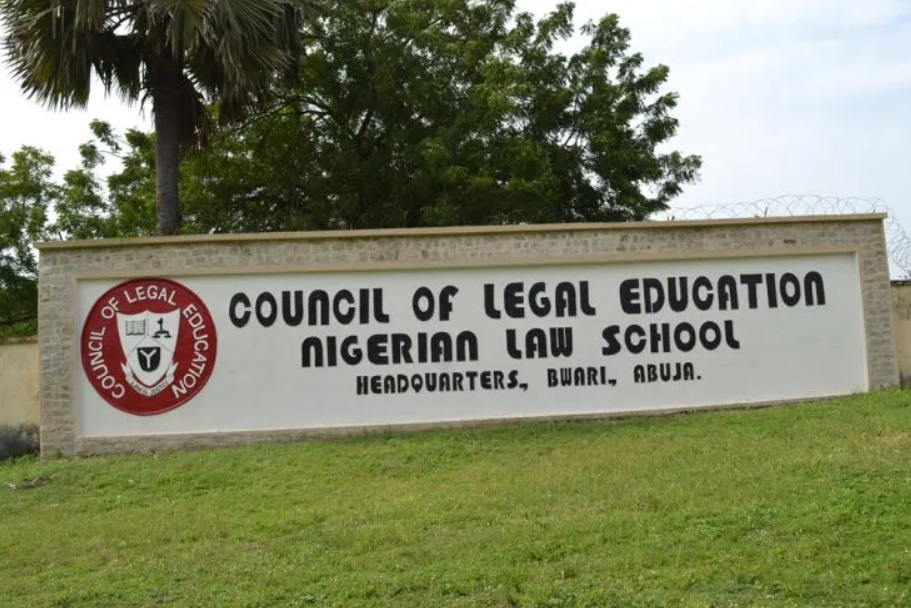The Council for Legal Education, the body that runs the Nigerian Law School, struck a deal for the transfer of the school’s land and buildings to the Nigerian Bar Association (NBA) in violation of the Public Procurement Act, the latest audit report of the Office of the Auditor-General of the Federation (OAuGF) has revealed.
According to the Public Procurement Act “before slating any public property for disposal, the accounting officer in charge of any public property set for disposal shall authorise the preparation of a valuation report for such property by an independent evaluator.”
But contrary to the legal provision, the Nigerian Law School said two buildings at its Lagos campus belong to the NBA without “evidence of transfer of ownership title to the NBA or rental income received by the Council of Legal Education was not produced for audit,” the report revealed.
Attributing the “anomalies” to weaknesses in the internal control system at the law school headquartered in Abuja, the report requested the Director-General of the school, Isa Chiroma, a law professor, to “provide justification to the Public Accounts Committee of the National Assembly on the irregular acquisition of land” at the institution’s Lagos campus.
The audit report, which was released in December 2023, covers the 2020 fiscal year.
It also demands that Mr Chiroma, a Senior Advocate of Nigeria (SAN), produce the supporting documents relating to the acquisition of the assets or their lease agreements to the parliament.
The report added that if Mr Chiroma fails to comply with the recommendations, “sanctions relating to gross misconduct specified in the Financial Regulations” should apply.
Another violation in Yola
Raising another issue over violation of the Financial Regulations, the report disclosed that a parcel of land was leased as business premises by the law school management at its Yola campus in Adamawa State to a vendor.
In flagging the transaction, the report said the vendor constructed a “permanent supermarket” within the Yola campus of the law school “without evidence of outright acquisition, rental payments or lease agreement.”
Like in the previous infraction, the report asks Mr Chiroma to provide supporting documents like an agreement between the law school and the vendor concerning the property and transmit the said document to the National Assembly.
Law School’s response
In response to the allegation of violations, the authorities of the law school admitted that the parcel of land at its Lagos campus belongs to the government.
However, it erroneously claimed that the “issues arising (from the sale of the assets) are also within two government bodies – the Nigerian Law School and the NBA.”
The NBA, although an important body in Nigeria’s legal system, is not a government institution but an association of lawyers registered as a corporate body by the Corporate Affairs Commission (CAC).
The school did not disclose the nature of the transfer of the parcel of land to the NBA. It was not clear from the school’s response if the land was sold to the NBA or given to the association, leased or given to the association for free.
The school further noted that it was exploring “legitimate measures” in resolving the issue amicably with the NBA.
“We assure your office of an update soonest in respect of the ownership of the said property,” the school said in its response to queries from the office of the Auditor-General.
Responding to the property transaction in Yola, the law school blamed the absence of its schedule officer who was in possession of the transaction documents during the audit visit.
Furthermore, the school blamed the “paucity of funds to develop some parts of the school in Yola” for the leasing of the property to the vendor.
Risks
The Auditor-General of the Federation’s report identified the land acquisitions on the Law School campuses as constituting risks to the government.
It said the deals constituted a risk of “loss of government property” and “loss of rental income”.
It added that the Yola deal constituted a potential “encroachment of government property”.
In both cases, the report said the anomalies could be attributed to weakness in the internal control system at the Council of Legal Education, Nigeria Law School, Abuja.
The findings came at a time of falling ethical standards in the legal profession, a development which a former NBA president, Okey Wali, had blamed on declining standards and poor curriculum for law students as far back as 2014.
In 2017, the NBA, then led by Abubakar Mahmoud, constituted a 23-member committee to review the legal practice in Nigeria, expressing concerns about “the falling standard of legal education and legal practice.”
Brief history
The Nigerian Law School, a significant cradle for the legal profession, was established in Lagos under the Legal Education Act 1962 now Legal Education (Consolidation Etc) Act Cap. L10, Laws of the Federation, 2004.
The school is saddled with providing one-year legal education to equip Law graduates with knowledge of the skills and ethics of the legal profession.
Law graduates must pass Law school examinations and be called to the Bar to practise as lawyers in Nigeria. As a result of this, all Nigerian lawyers and judges are products of the school.
From 1962 up till December 1997, the Law School had only one campus in Lagos.
However, due to the federal government’s directive, the school was relocated to Bwari in Abuja in December 1997.
It currently has campuses in Lagos, Bayelsa, Enugu, Rivers, Adamawa, Kano, and Abuja.
Mr Chiroma first assumed the headship of the law school in 2017 and was reappointed for a second term of four years in 2021 by then-President Muhammadu Buhari.
He succeeded Olanrewaju Onadeko, a SAN, following the former’s retirement.
= PREMIUM TIMES
